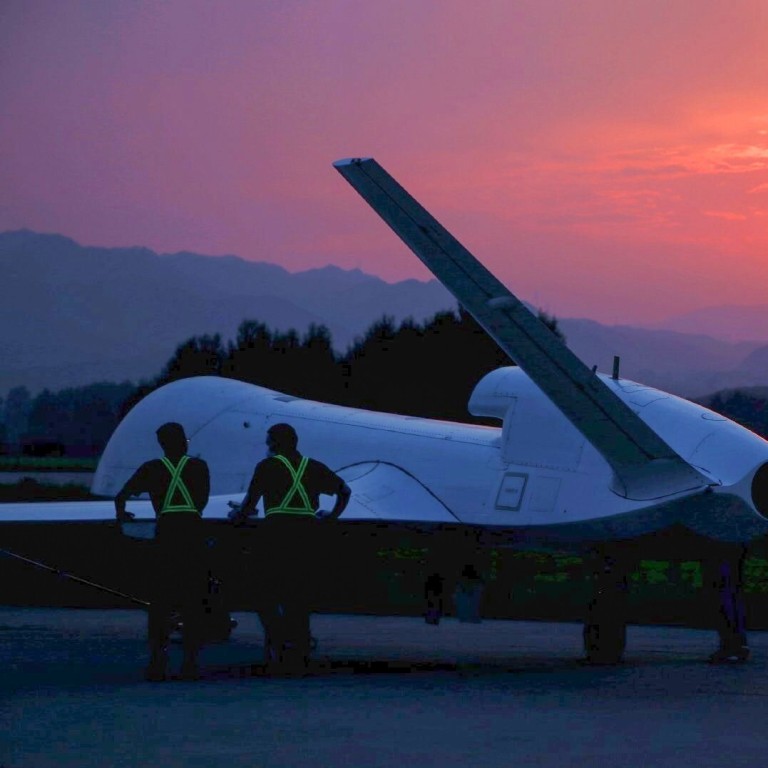
China should use drones to patrol and defend contested seas, academics say
- Report calls for unmanned systems above, on and below the water to strengthen Chinese coastguard power
- Authors point to activities by claimants in South China Sea and East China Sea to make their case
The authors, from China’s Naval Research Academy and Northwestern Polytechnic University’s School of Marine Science and Technology, said cheap, advanced unmanned systems were needed to strengthen the country’s coastguard power.
Northwestern Polytechnic University is directed by China’s Industry and Information Ministry and has been listed as a restricted entity by the US, which bars it from full research collaboration and exchanges with the United States.
The report was published towards the end of last year in Strategic Study of CAE, a journal supervised by the Chinese Academy of Engineering (CAE) and picked up this week on social media platforms in China. It said China was facing a “severe challenge” in defending its maritime interests.
But according to the report, titled “Research into Unmanned Equipment to Defend Maritime Rights”, China has insufficient numbers of coastguard ships and planes to defend and patrol the vast expanse, and the void could be filled by unmanned systems.
PLA troops in South China Sea learn ‘essential’ battlefield English
“The unmanned intelligent equipment can conduct various missions, and the various unmanned systems have distinct advantages that manned crafts cannot have, and are showing potential in maritime law enforcement operations,” it said.
Aided by sensors and big data analytic programmes, these unmanned systems could capture and report information autonomously, as well as perform a range of duties including warning and driving away ships, the academics proposed.
The report listed several unmanned systems, including the US ScanEagle – a small, long-endurance, low-altitude unmanned aerial vehicle – and Japan’s Wave Glider, a long-duration ocean robot that can gather oceanic data, and suggested China could develop similar products.
China is a world leader in the development of unmanned systems, especially civilian and military drones, which are widely used for logistics, delivery, reconnaissance and surveillance. China has also developed multiple underwater gliders that can get an accurate bathymetric map of the sea floor and understand thermal conditions.
Timothy Heath, a security expert from the US think tank Rand, said the most useful unmanned systems for China were probably aerial surveillance drones, which could help improve situational awareness over a broad area and provide detailed information on individual ships.
“Surface and underwater systems could help provide situational awareness as well. These assets are most effective if used in collaboration with manned surface ships and aircraft. The unmanned systems could provide information and intelligence to coastguard and navy ships and aircraft, who could then do the actual work of enforcement,” he said.
“The neighbours will likely object to the intrusiveness of unmanned systems following and monitoring their behaviour, because these platforms could significantly increase China’s ability to harass and coerce rival claimants.”
China tests swarm of ‘suicide drones’ launched from truck and helicopters
Malcolm Davis, a senior analyst in defence strategy and capability at the Australian Strategic Policy Institute, said China would encounter strong resistance if it used unmanned systems aggressively.
“Chinese actions throughout the region will also be challenged by other states, including Indonesia, and Australia does deploy air and naval forces through the South China Sea to demonstrate its right to passage through international waters, as well as with the US and Japan,” he said.

